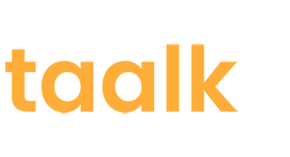The Free Revolution: How Cal.ID Founders Are Taking on the Scheduling Giants
In the world of B2B SaaS, the freemium model is a powerful tool, but what happens when a company decides to give away the entire professional suite for free? This is the bold strategy of Cal.ID, a scheduling platform from the OneHash suite of business solutions, as it sets its sights on market leader Calendly. The founders of OneHash, Rohit Gadia and Manas Jha, are building a movement around the idea that professional-grade tools should be accessible to everyone, from solopreneurs to large enterprises, without the burden of escalating costs.
This isn’t just another competitor; it’s a fundamental challenge to the established pricing models of the scheduling software industry. Cal.ID is positioning itself not just as an alternative, but as the “ultimate free Calendly Pro alternative,” a narrative that resonates deeply with cost-conscious startups and growing teams.
The Genesis: A Founder’s Quest for Democratized Productivity
The story of Cal.ID is rooted in the broader vision of OneHash, which was founded by Rohit Gadia and Manas Jha. They recognized that while many business solutions exist, they are often out of reach for small and medium-sized businesses due to high costs. Launched in the midst of the pandemic in 2020, OneHash’s core mission is to empower 95% of the world’s SMBs with affordable, agile, and secure solutions. Cal.ID emerged as a critical piece of this larger puzzle—a tool designed to solve one of the most universal business pain points: the chaos of scheduling.
Gadia and Jha understood that for many entrepreneurs, the back-and-forth of coordinating meetings is a massive drain on productivity. Traditional free plans from competitors often come with severe limitations, forcing users to upgrade just to access essential features like team scheduling or advanced integrations. Cal.ID’s strategy directly addresses this friction by offering a full suite of professional features at no cost. This approach is not only a savvy market entry point but also a powerful expression of their commitment to democratizing access to powerful business tools.
The Strategy: Beyond Freemium to a Full-Featured Free Model
Cal.ID’s unique value proposition is its commitment to providing enterprise-level features for free. This is a game-changer for startups and teams that have been forced to choose between functionality and budget. The platform offers a compelling alternative to competitors by including:
- Professional Branding: Users get a personalized
cal.id/yournamelink, which helps build a professional presence without the expense of a premium plan. - Smart Automation: The platform automates booking confirmations, reminders, and follow-ups, reducing no-shows and freeing up valuable time.
- Seamless Team Collaboration: Cal.ID enables team members to share availability, distribute meetings efficiently, and coordinate schedules without the chaos of manual processes. This feature alone is a powerful B2B SaaS growth strategy for attracting and retaining small businesses.
- Extensive Integrations: With over 60 integrations, including popular tools like Google Calendar, Zoom, and payment gateways like Razorpay, Cal.ID ensures it works with what businesses already use.
- Data-Driven Insights: Useful analytics show which meeting times are most effective and which services are most popular, providing valuable data for business owners to optimize their operations.
By forking and building upon the open-source Cal.com, the OneHash founders have leveraged a robust foundation to create a powerful, flexible, and feature-rich product. This strategic move allowed them to rapidly develop and launch a platform that rivals legacy players while maintaining their commitment to a free-for-all model.
The Founder’s Mindset: Building an Ecosystem, Not Just a Product
The vision behind Cal.ID is not to simply offer a single product but to create a comprehensive ecosystem of solutions under the OneHash umbrella. By providing a best-in-class scheduling tool for free, they are building a large and loyal user base. This foundational product serves as a gateway to their other offerings, such as their CRM and chat solutions. This ecosystem approach is a forward-thinking way to achieve long-term sustainability and growth, as it creates a cohesive suite of tools that businesses can rely on as they scale.
For startup founders, the lesson here is clear: your first product doesn’t have to be the one that generates all your revenue. It can be a powerful lead magnet, a free utility that builds trust and establishes a relationship with your users. The true value lies in the long-term relationship you build and the ecosystem you create around that core offering.
Key Takeaways for Aspiring Founders
- Challenge the Status Quo: Don’t be afraid to disrupt a market’s established business model. Cal.ID’s free-for-all approach to professional features is a bold move that is quickly gaining traction.
- Solve a Universal Problem: Scheduling is a pain point for virtually everyone. By building a comprehensive solution for a widespread problem, you ensure a large potential audience.
- Leverage Open-Source: Building on a strong open-source foundation can accelerate development and allow you to focus on unique features and a compelling user experience.
- Think in Ecosystems, Not Products: Consider how your first product can serve as a foundation for a broader suite of solutions, creating a network effect that benefits both your company and your users.
The founders of Cal.ID are not just offering a scheduling tool; they’re offering a philosophy. Their mission to provide a free, powerful alternative to expensive competitors is a powerful reminder that in the world of startups, value and accessibility can be the ultimate competitive advantage.
Are you a startup founder or innovator with a story to tell? We want to hear from you! Submit Your Startup to be featured on Taalk.com.








